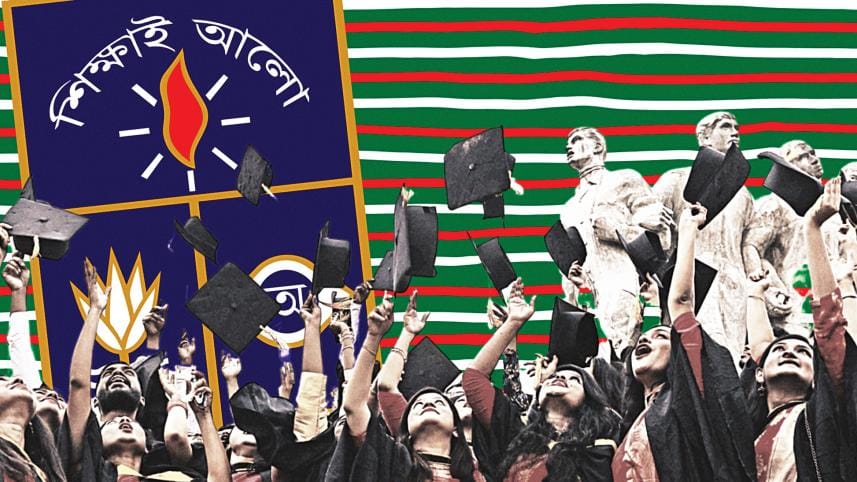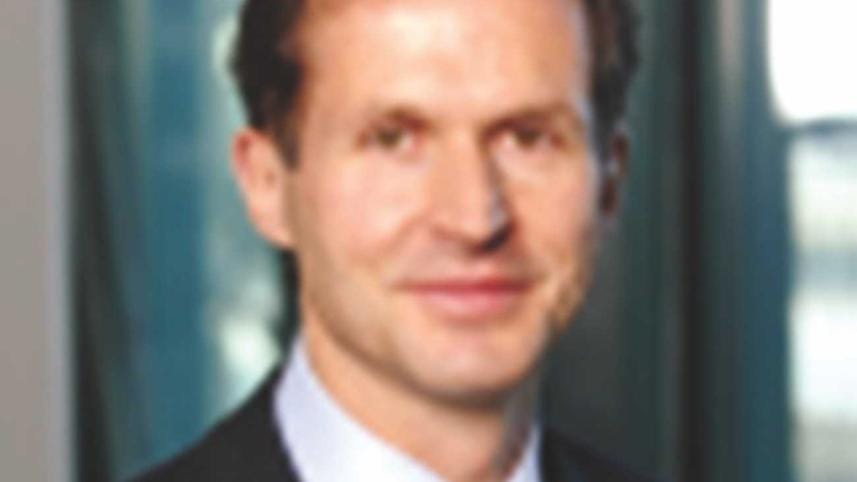Reflections on University of Dhaka convocation speeches: Part II

The second volume of Dhaka University: The Convocation Speeches, 1948-1970 (Dhaka University Publications, 1989), assembled assiduously by Emeritus Professor Serajul Islam Choudhury, is an important publication like the first one for anyone trying to understand Dhaka University's extraordinary role in the genesis and identity formation of Bangladesh. The first volume covered the birth of the university in circumstances having to do with the annulment of the partition of Bengal in 1911; the second contains speeches dealing with the second partition of Bengal in 1947, when East Bengal became a province of the "Islamic" republic of Pakistan. It encapsulates a period when Bengali Muslims in East Pakistan were coming to terms with leaders who were supposed to be their own, but were really men who played the Islamic card to serve their own interests.
The DU campus is where Bengali men and women would most often assemble to resist and thwart their (west) Pakistani rulers. Indeed, the very first convocation held in 1948, the second year of its Pakistan phase, registers the first intense public expression of dissent of East Pakistanis at what their supposed brothers/friends (and not masters!) were doing with them; the last one organised in 1970 unmistakably registers their determination to assert their identity as Bengalis fully and firmly, and their readiness to attain independence unequivocally. From beginning to end, the convocation speeches record subterranean signs of dissent and indications of the spiraling discontent of Bengali administrators, faculty members, and students.
Take the three 1948 speeches, for instance. Vice-Chancellor Dr Mahmud Hasan quite rightly acknowledges in his speech the university's debts to the leaders of the Muslim community of the province for the role they played in founding the institution, but this is followed by two pages eulogising the Convocation Speaker, the Governor General of Pakistan, Muhammad Ali Jinnah, and then four pages on the importance of an education system that "must be Muslim" at the university level. The three pages of the Chancellor's speech, the first and last British "Governor" of East Pakistan, are pretty nondescript as befitting the representative of a colonial power that has now abdicated all responsibilities, but Jinnah speaks darkly of Pakistan's enemies and alludes to the way "the recent language controversy" has been "sedulously injected into the province". He declares explicitly afterwards: In Pakistan, "the state language must obviously be Urdu" since "it is a language, more than any other provincial language, that embodies the best that is in Islamic culture". Therefore, "there was no justification for agitation".
Bangladeshi historians record that the students present, however, were protesting vociferously even as Jinnah was speaking. They note, as well, that this was the beginning of the end of Pakistan for Bengalis, for the insistence on Urdu and exclusion of Bangla would ultimately prove to be lethal for the state. Here, as elsewhere in the volume, the critical role DU played in the emergence of Bangladeshi nationalism is reflected uniquely.

I will ignore the speeches of the next few convocations, only noting in passing that in his speeches in 1950 and 1952, Chancellor Malik Firoz Khan Noon insists on imparting Islamic education and pointing out the tendency of "foreign ideologies to enter the portals of [...] our youth by their subtle and insidious anti-state and anti-Islamic doctrines and propaganda", revealing thereby the growing strength of the movement demanding that Bangla be made a national language. One notes, too, that there were no convocation ceremonies in 1951 and 1953, no doubt because of the decisive turn Bengalis took towards Bangladesh on February 21, 1952.
For 1954, The Convocation Speeches includes only VC WA Jenkins's wise speech. The British physicist-turned-administrator decides, revealingly, to talk about "Democracy and Universities", indicating that it was being threatened by its opposite— "autocracy". He cautions of "an appalling tragedy unless there can be developed a sympathetic understanding between students, teachers, the public, and national leaders of all kinds". I am reminded of what Jenkins implies but does not state—this was the year that the Jukto Front triumphed and the Muslim League was wiped out in an election where DU alumni like Sheikh Mujibur Rahman played major parts.
In his 1955 speech, Chancellor Amiruddin Ahmed centres on the "practical application of the concept of freedom to educational institutions in general and universities in particular". These speeches should have sobered those West Pakistani rulers who were doing their utmost to stifle academic freedom. Let me add that they are themes that should be in the mind of all governments, everywhere, in all ages.
Other issues emphasise financial and accommodation problems the steadily expanding university was facing. Justice Muhamamad Ibrahim, the eighth VC of DU, in his 1958 speech, makes the important point that "research and advancement of knowledge", even more than teaching, are primary functions of a university. I was struck repeatedly by the recurring insistence on campus freedom. In 1961, for example, VC Mahmud Husain emphasises "when free institutions are suppressed civilization itself experiences a setback". Professor Husain, who seemed to have played a key part in DU's expansion, warns in his 1962 speech that "truth, freedom, honor, justice, charity, love, equality, democracy are all concepts" which only cynics dismiss and fail to associate as values civilizations must hold dear.
Dhaka University: The Convocation Speeches indicates that no convocations were held from 1965 to 1969. Things obviously were not right politically; Bengalis were striving forcefully for greater autonomy as the Six-Point Movement was gathering steam. When the 1970 convocation was held, everyone present was in for a major surprise. VC Abu Sayeed Chowdhury, later destined to be Bangladesh's High Commissioner to the UK, the country's Foreign Minister and President, and Chairman of the UN Commission on Human Rights, spoke in Bangla. In the last convocation speeches presented in the book, both he and the Convocation Guest, the distinguished scientist and educationist Muhammed Kudrat-e-Khuda, spoke in Bangla. Bangladesh's moment had arrived; the national longing for appropriate form had found fulfilment!
My reading of the second volume of Dhaka University: The Convocation Speeches leads me to the lessons to be learnt from it: DU has been central to the birth of Bangladesh in every way; liberatory politics has always been at the heart of the institution and has always propelled it forward. Any attempt to throttle autonomy and free thought in it will be self-defeating for those trying to do so. Of course, research and teaching are central to the idea of this university if it wants to retain its importance and advance thought. This volume, like the first, is thus valuable not only in assessing the past of the institution but also in making us think of its future.
Fakrul Alam is UGC Professor, University of Dhaka.

 For all latest news, follow The Daily Star's Google News channel.
For all latest news, follow The Daily Star's Google News channel.
Comments